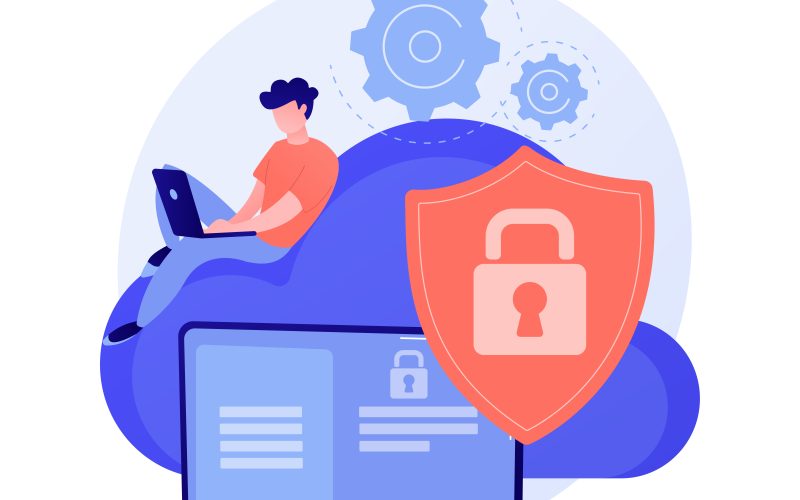In today’s digital age, cybersecurity is more crucial than ever. The constant evolution of technology has introduced new opportunities, but it has also opened the door to an increasing number of cyber threats. From data breaches and ransomware attacks to identity theft and phishing scams, the risks are growing at an alarming rate. As a result, businesses, governments, and individuals alike are becoming more aware of the need to safeguard their sensitive data and systems.
One of the most powerful ways to combat cybercrime and protect digital assets is by investing in ethical hacking. Ethical hacking is an essential component of modern cybersecurity, as it helps identify vulnerabilities and strengthen defenses before malicious hackers can exploit them. In this piece of knowledge, we will explore why ethical hacking is indispensable in today’s cybersecurity field and how enrolling in the cybersecurity and hacking courses and certifications can help individuals and organizations stay ahead of cybercriminals.
What Is Ethical Hacking and Why Is It Important?
Ethical hacking, also known as penetration testing or white-hat hacking, involves legally probing a computer system, network, or application for vulnerabilities that a malicious hacker could exploit. Ethical hackers are cybersecurity professionals who are hired by organizations to identify and fix security flaws, thereby preventing cybercriminals from gaining unauthorized access.
Ethical hacking plays a vital role in the cybersecurity ecosystem for several reasons:
-
Preemptive Defense: Ethical hackers simulate real-world cyber-attacks to find weaknesses before hackers can exploit them.
-
Regulatory Compliance: Many industries require businesses to conduct regular security assessments to comply with data protection regulations. Ethical hacking helps meet these requirements.
-
Protecting Sensitive Data: In today’s connected world, data breaches can lead to catastrophic consequences. Ethical hackers help protect sensitive personal, financial, and corporate data.
The Growing Threat of Cybercrime
The digital landscape is becoming increasingly complex, with more people and businesses relying on cloud storage, mobile applications, IoT devices, and other technologies that come with their own security risks. Cybercriminals, on the other hand, have become more sophisticated in their methods, using advanced techniques like AI and machine learning to bypass traditional security measures.
Some of the most common cyber threats include:
-
Ransomware: This malicious software locks up a company’s systems, demanding payment to restore access.
-
Phishing: Cybercriminals impersonate legitimate entities to trick individuals into providing sensitive information such as login credentials or financial details.
-
Data Breaches: Cyber attackers target organizations to steal personal, financial, or proprietary information, often selling it on the dark web.
-
Denial-of-Service (DoS) Attacks: Attackers overwhelm a network or website, rendering it unusable.
Given the increasing sophistication and frequency of these attacks, ethical hacking is more important than ever to test systems’ defenses and preemptively identify weaknesses.
How Ethical Hacking Contributes to Effective Cybersecurity
Ethical hackers bring several key benefits to the cybersecurity field:
-
Proactive Threat Detection: Instead of reacting to cyber-attacks after they’ve occurred, ethical hackers simulate attacks to identify vulnerabilities. This proactive approach allows organizations to patch weaknesses before they can be exploited.
-
Security Testing in Real-World Scenarios: Ethical hackers use the same tools and techniques as cybercriminals to assess security systems. This helps organizations test their defenses in real-world conditions, ensuring that security measures are genuinely effective.
-
Continuous Improvement: Cybersecurity is not a one-time effort. Ethical hacking provides ongoing testing and feedback, helping organizations continuously strengthen their security measures to stay ahead of emerging threats.
-
Cost Savings: A major cyber-attack can cause substantial financial loss, damage to reputation, and legal repercussions. By identifying vulnerabilities early, ethical hacking helps businesses avoid costly security breaches.
Ethical Hacking and the Rise of Cybersecurity Careers
As the demand for cybersecurity professionals continues to soar, the role of ethical hackers has never been more critical. Ethical hackers, also known as penetration testers or security analysts, are in high demand across various sectors. According to the U.S. Bureau of Labor Statistics, the cybersecurity workforce is expected to grow by 31% from 2019 to 2029, much faster than the average for other professions.
Trending Subheading: The Importance of Continuous Learning in Cybersecurity
Given the dynamic nature of cyber threats, continuous learning and upskilling are essential for cybersecurity professionals. The best way to stay ahead of evolving risks is by enrolling in specialized courses. The best cybersecurity and hacking courses provide students with the latest tools, techniques, and methodologies used by ethical hackers to combat cybercrime.
Here are some trending cybersecurity and ethical hacking skills you can acquire from online courses:
-
Penetration Testing: Learn how to conduct comprehensive security assessments, including network and web application penetration tests.
-
Malware Analysis: Understand how malware works and develop strategies to prevent, detect, and remove malicious software.
-
Network Security: Gain expertise in securing corporate networks, including firewalls, VPNs, and intrusion detection systems.
-
Incident Response: Master the process of identifying, containing, and mitigating security incidents.
-
Cryptography: Learn how to protect sensitive information through encryption and secure communication protocols.
The best cybersecurity courses often incorporate hands-on labs and real-world simulations, allowing students to apply their skills in safe, controlled environments.
Trending Subheading: The Rise of Online Cybersecurity and Hacking Courses
For aspiring ethical hackers, online courses are the most efficient and accessible way to gain the knowledge and practical skills needed to succeed in the field. Many reputable online platforms offer courses designed by industry experts, providing an in-depth education in all aspects of cybersecurity, from ethical hacking to incident response.
Online courses are particularly attractive because they:
-
Offer Flexibility: Learn at your own pace, from anywhere in the world, while balancing your career or studies.
-
Provide Certification: Many online programs offer certifications that are recognized by the industry, making them a valuable asset for job seekers.
-
Cost-Effective: Online courses are often more affordable than traditional classroom learning, making them a great option for those looking to enter the field without breaking the bank.
-
Offer Real-World Experience: Practical exercises and simulations allow students to gain hands-on experience with cybersecurity tools and scenarios.
Conclusion: Ethical Hacking is Essential for Today’s Digital World
As cyber threats continue to grow in sophistication and scale, ethical hacking has become an essential part of the cybersecurity field. By identifying vulnerabilities before malicious hackers can exploit them, ethical hackers help businesses and organizations maintain robust security systems. The growing demand for cybersecurity professionals means that ethical hacking will continue to be a critical skill in the workforce.
To succeed in ethical hacking and cybersecurity, investing in the top cybersecurity and hacking certifications and courses is key. These courses provide the training, certification, and practical experience needed to stay ahead in an ever-evolving field. Whether you’re an aspiring ethical hacker or an experienced professional looking to upskill, enrolling in these courses will ensure you are equipped with the knowledge to tackle the next generation of cyber threats.












